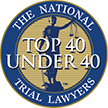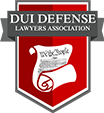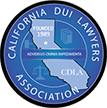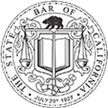California has set strict laws on commercial driver's license holders. A successful conviction for a commercial driver's license violation puts the driver at risk of losing the license through suspension or a lifetime revocation. Losing your commercial driver's license can be devastating, mainly if you rely on it for your daily source of income.
At Bakersfield DUI Attorney, we are committed to providing the best legal services to drivers at risk of commercial driver's license suspension. Our goal is to ensure that our clients' charges are acquitted or reduced. So please schedule an appointment with us today, and let's help you go through this difficult time.
An Overview of California Commercial Driver's License Laws
California commercial driver's license laws are defined under Vehicle Code 23152(d). Under this statute, it's illegal to drive a commercial driver with a BAC of 0.04% or more. The BAC limit only applies to motorists operating a commercial motor vehicle, unlike the BAC level of 0.08%, which is the California standard BAC limit.
Please note, the 0.04% limit applies whether the commercial driver is impaired or not during the time of the arrest.
Definition of Commercial Vehicles in California
A commercial vehicle is defined as any vehicle registered to maintain the transportation of people, for hire, or designed to profit an entity or an individual. It also includes vehicles primarily maintained for the transportation of property. There are two types of commercial vehicles in California. This include:
-
Vehicles that drivers with a Class B driver's license drive.
-
Vehicles that drivers with a Class C license drive.
A Class B license allows a driver to operate a small commercial vehicle. However, drivers driving these types of vehicles must have an endorsement for commercial driving. Small commercial automobiles are as follows:
School Buses
School buses include the following:
-
A passenger motor vehicle that can carry ten or more passengers, including the driver
-
Vehicles that carry hazardous materials and should have placards
-
Specific farm vehicles which include a double trailer and a tank vehicle
Large Trucks
Large trucks include big commercial vehicles operated by holders of Class B licenses. This includes:
-
Trucks with a Gross Vehicle Weight of above 26,000 pounds
-
3-axle trucks weighing more than 6,000 pounds
There are specific vehicles that fit the description provided above but are not commercial. This includes:
-
Agricultural automobiles that are driven by drivers who mustn't have a license to operate
-
Recreational vehicles
Consequences for A Conviction for a Commercial Vehicle License Holder
A commercial driver's license suspension is one of the penalties for a conviction for a commercial driver's license holder. A commercial driver can face these consequences if they are arrested for:
-
Driving a commercial vehicle with a blood alcohol content of 0.04% or above
-
Driving a non-commercial vehicle with a BAC of 0.08%
-
Driving any vehicles while you are impaired due to the intake of alcohol or drugs even when you have a low BAC
Criminal Penalties
The potential court-ordered penalties for commercial drivers convicted for a first-time DUI include:
-
Summary or informal probation
-
A maximum of one year of custody in county jail
-
A maximum fine of $1,000
-
A maximum of 36 months of court-ordered attendance in a California DUI school
The penalties increase with the subsequent conviction. However, a conviction for a DUI that causes injury is convicted as a California felony.
Suspension of Your Commercial Driver's License
Commercial drivers convicted for any DUI offense can have their license suspended for at least a year. The suspension applies even for drivers who were not driving a commercial vehicle during the arrest. It also applies to drivers who're arrested for DUI and refuse to take a DUI blood or breath test.
Your commercial driver's license can be suspended for three years or longer if your offense occurs when operating a commercial vehicle that carries hazardous materials.
Two instances can trigger commercial driver's license suspension in California. This includes a DMV suspension and a court-ordered suspension. Let's have a closer on these two options:
DMV Suspension
The DMV (Department of Motor Vehicles) is responsible for issuing and suspending a driver's license. It can suspend your commercial driver's license when arrested for driving while under the influence. Your arresting DUI officer will issue you with a notice of suspension once he or she takes away your driver's license. The notice acts as a document that informs you that you're entitled to a DMV hearing. Drivers have a maximum of ten days to request a DMV hearing and contest the suspension. Failure to request the hearing within the specified timeline leads to an automatic suspension of the driver's license.
Court Imposed CDL Suspension
As indicated above, you can have a court-imposed CDL suspension if the DUI charges are taken to court. This means that your case is taken to court, where a criminal proceeding will take place. In a court conviction, the prosecutor will rely on witnesses and other evidence like the field sobriety test. If you are found guilty, the court will suspend your commercial driver's license for a year.
Other Factors that Can Lead to Commercial Driver's License Suspension in California
Other factors can lead to your commercial driver's license other than impaired driving. These factors include:
-
Refusal to Take a Chemical Test
Under California implied consent law, lawfully arrested drivers should submit to a breath test to determine their blood alcohol content. It also applies to DUI blood tests. Declining to take a chemical test can subject your driver's license to suspension. The timeline for suspension is four months for your first offense and one year for a subsequent offense within ten years. If you are convicted for refusing to take a chemical test and are found to be driving with a BAC limit above the required standard, your punishment will likely increase. Similar to a suspension triggered by DUI, you have ten days to file a hearing with the DMV to challenge the decision to suspend your license.
-
Driving Using a Suspended License
The DMV will subject you to severe consequences if your driver's license was suspended and you are found to be driving with it. Driving with a suspended license enhances your suspension, probably with a period that's equivalent to the initial suspension. The added suspension period starts after the initial period has expired.
-
Accumulation of Your Points
In California, violation of traffic rules adds points to your criminal record. These points accumulate on your criminal records based on the type and severity of your traffic violation. Drivers holding a commercial driver's license earn an additional 0.5 points more than a regular driver would ordinarily earn. For instance, if a particular offense earns you 1 point, the same offense would earn you 1.5 points if you are a commercial driver's license holder. Factors that can lead to the issuance of points on a person's record include:
-
Causing an accident
-
Mechanical violation
-
Criminal driving offenses
-
Moving violations
An accident would typically add one point to your criminal record. However, causing a fatal accident would have the DMV suspend your license even if you haven't accumulated any points. Accumulating these points within a specific timeline can have your CDL suspended. Below are the circumstances that can lead to the suspension:
-
Earning a minimum of four points within one year
-
Earning six points within two years
-
Earning eight points or more in three years
The DMV declares motorists with an accumulated number of points as negligent operators. You can contest a license suspension through a negligent operator hearing if you are declared a negligent operator.
Other factors can lead to the suspension of your commercial driver's license. These factors include:
-
Leaving a scene of the accident without identification
-
Driving while under the influence of drugs
-
Driving recklessly with the increased chances of causing a fatal accident
-
Use of a commercial vehicle in committing a felony that involves the distribution or manufacture of controlled substances
-
Causing or contributing to a severe injury traffic collision
-
Transporting more than 10,000 pounds of dangerous fireworks
Lifetime Suspension for Your Driver's License
The DMV can suspend Class A and B vehicle license holders for a lifetime if they commit a traffic offense, specifically DUI, for the second time and use a commercial vehicle to commit a felony that involves a controlled substance. Contact a professional defense attorney to reduce your lifetime suspension conviction to a specific time suspension.
CDL Suspension Under Federal Law
Your commercial driver's license can be suspended under federal laws other than through a court-ordered suspension or a DMV-ordered suspension. This is common for interstate commercial vehicles.
The Federal Carriers Safety Administration (FMCSA) is responsible for imposing fines and suspensions on commercial driver's license holders. Under their law, they can suspend or revoke your driver's license for a minimum of sixty days, depending on the nature of your arrest.
The Difference Between CDL Suspension and Revocation
Drivers usually confuse license suspension and revocation. The main difference between suspension and revocation is how long a person should wait to have their license reinstated after a suspension or revocation. When the DMV suspends a driver's license, drivers cannot drive until their license is returned. Therefore, the only way to have your license reinstated is by solving the issue that led to the suspension.
Contrary, a DMV license revocation means that the license will remain invalidated indefinitely. However, you can only reinstate your license under particular situations. In most cases, license revocation occurs when a driver is arrested for drug or alcohol-related offenses. Driver's license revocation only acts as a combination of a punishment or a way to protect other motorists and pedestrians, especially with the gravity of danger that commercial vehicles pose in case of an accident.
DMV Suspended CDL Hearing in California
After a license suspension, the arresting officer will provide you with a notice of suspension with a brief reference to call a phone number that's listed on top of the form. The telephone number (916-657-0214) is in a small print at the top right corner of the form. This phone number is always busy and might not be able to connect. However, a recorded voice would give you a little bit of information about what you should do.
You must contact the Driver Safety Office to successfully schedule a DMV hearing or an Administrative Per Se Hearing. The Driver Safety Office covers all areas of DMV-related arrests. There are fifteen Driver Safety Offices in California. Commercial drivers in Bakersfield should contact their offices with the following address:
5800 District Blvd
Ste. 100-B
93313 – 2148
Phone (661)833-2103
Fax (661) 833-2102
Scheduling an Administrative Per Se Hearing involves a simple telephone call to the correct offices. But, first, you must provide the correct information about yourself to the DMV staff member attending and schedule a hearing.
Please note, the staff members answering these phone calls are instructed to dissuade a driver from scheduling this hearing. The staff member will probably tell you that you cannot win the hearing, despite this being blatantly incorrect. You should demand the right to defend yourself in this hearing. Most importantly, make sure that you act within the first ten days of the calendar days after an arrest.
Details About the Administrative Per Se Hearing Takes Place
An Administrative Per Se hearing is a legal proceeding in the office of the hearing officer assigned by the DMV. DMV hearing officers are usually DMV employees since they work under the guidelines of the California Administrative Law and shouldn't be attorneys or judges.
In this hearing, the Hearing Officer presumes that you're guilty of the charges made against you, which is entirely different from what occurs in California courts.
The DMV hearing runs as a mini-trial. You are allowed to demonstrate your innocence or that the evidence presented against you is inaccurate. As simple as this might sound, it's challenging for a layperson to win an Administrative Per Se hearing successfully. The Hearing officer will most probably demand that you follow specific protocols according to the Government Code or Evidence Code.
The outcome of the hearing is a win or a loss. If you win the hearing, your driving privileges are reinstated. Losing the hearing will order a period of suspension or revocation.
Appealing for A Bad DMV Decision
Drivers can appeal to the DMV decision if the DMV declines your attempt to challenge their commercial license suspension. You can appeal a bad DMV appeal using two ways within fifteen days after the suspension date to file an appeal.
The appeal is heard by a board of supervisors, unlike the Hearing Officer that holds the first hearing. The board should look into the evidence that's presented during the hearing. The board can consider any evidence that surfaces during the review hearing. Based on your defense, the DMV upholds the initial DMV hearing officer's decision, overturn it, or remand it to re-open in a hearing.
Please note, your commercial driver's license suspension does not stay. It usually goes into effect until the effective date.
You can also appeal the DMV decision by filing a petition with the Appellate branch of the Superior Court of your court. The court will need you to file a writ of mandamus/mandate. The writ of mandate grants the superior court judge to review the DMV hearing officer's merit. It must be filed within thirty-four days after the date of suspension if you did not consider an administrative review or within ninety-four days after the administrative review. The filing fee generally costs about $500. In addition, you can request a stay of suspension as you wait for the outcomes of the writ petition.
You should make the request ex parte, with proper notice from the judge. An ex parte request means that you'll be requesting without necessarily waiting for a response from the other party. For example, petitioning a writ of mandate requires you to do the following:
-
Submit a verified petition
-
File an ex parte request for a stay
-
Submit an opening brief
-
Submit a reply brief
You'll be awarded the attorney's fees as the prevailing party and have your driver's license reinstated if the superior court judge grants you the petition. Conversely, a loss of the petition prompts the Deputy Attorney's General's office, representing the DMV, to request the prevailing party's fee. This process takes anywhere between four to nine months. The process requires rigorous preparation, court appearances, and legal writing. Therefore, it's vital to hire a professional attorney.
Restricted Driver's License for Commercial Vehicle Drivers in California
You can be eligible for a restricted driver's license if your CDL wasn't previously suspended and if you were driving a non-commercial vehicle when you received the CDL suspension. The restricted commercial driver's license allows you to drive from and to work. You can receive this type of license thirty days after you've received an Order of Suspension, and it is valid for six months.
Drivers whose suspension resulted from a DUI offense under the Admin Per Se program aren't eligible for a restricted commercial driver's license. However, they can apply for a restricted non-commercial driver's license only if you meet the following criteria:
-
This is your only violation for the last ten years
-
You submitted to a BAC test
-
You were at least 21 years old when they received the suspension
-
The CDL wasn't suspended for any other reason
A restricted non-commercial driver's license only allows you to drive to and from a DUI treatment program. It doesn't allow you to drive a commercial vehicle. Applicants for non-commercial driver's license must do the following:
-
Enroll in a DUI first offender program and provide proof of enrollment certificate with the DMV.
-
Submit proof of financial responsibility to the DMV. This includes an SR-22, $35,000 cash deposit, or a surety bond.
-
Pay a $125 fee.
Please note, you can only apply for the restricted license thirty days after receiving the suspension. If the DMV approves the application for the restricted driver's license, it will only apply for five months, after which you should wait for the remainder of the suspension.
Fees for Reinstating Your CDL License
The fees for reinstating your CDL depend on the type of offense that you've committed. The following are reissue fees that can apply in your commercial driver's license reinstatement:
-
A reissue fee of $55
-
Removal of restriction fee of $20
-
An add a court restriction fee of $15
-
APS suspension fee of $100
-
A drug-related suspension fee of $24
Please note, you must pay all court-sanctioned penalties or fines even after paying these DMV fees.
How to Win an Admin Per Se Hearing
Three types of defense can help you win in an administrative per se hearing. These defense strategies include the following:
-
A procedural defense based on how the DMV hearing is conducted
-
Mistakes made by the arresting officer during arrest
-
Chemical test defense based on science
Below are some of the strategies that can work for you based on the three types of defenses that you can use:
-
Illegal continuance granted.
-
Illegal denial of a continuance.
-
Illegal telephone testimony.
-
Using hearsays as the sole evidence for your charges.
-
Illegal stopping since you didn't break any law.
-
Stopping in an illegal sobriety checkpoint.
-
You were not driving at the time of the arrest.
-
You had rising blood alcohol.
-
The chemical test violated Title 17 requirement.
-
The test took more than three hours after driving.
After you've known about the elements that the DMV will use and know how you will defend yourself against these elements, you will have to review the facts of the case and select the most suitable defense. A typical case will involve at least three or four defenses, but there is no limit to these requirements. Again, the best way to go over this is by relying on a professional DUI attorney.
Find a Bakersfield DUI Attorney In addition, accumulatingNear Me
It's critical to meet with a qualified defense attorney if you or your loved one has been arrested for DUI and given notice of an impending commercial driver's license suspension. We have experience working with drivers with an impending license suspension in Bakersfield, Ca, and its environs at Bakersfield DUI attorney. We will work hard to ensure that you receive the best legal representation possible before the DMV. For more information, contact us today at 661-215-5660 and schedule a consultation with us.







